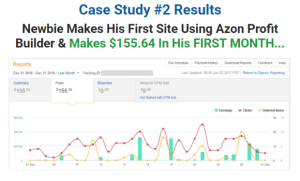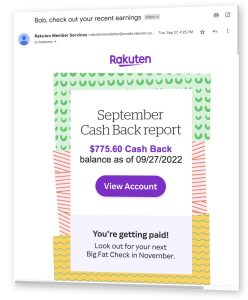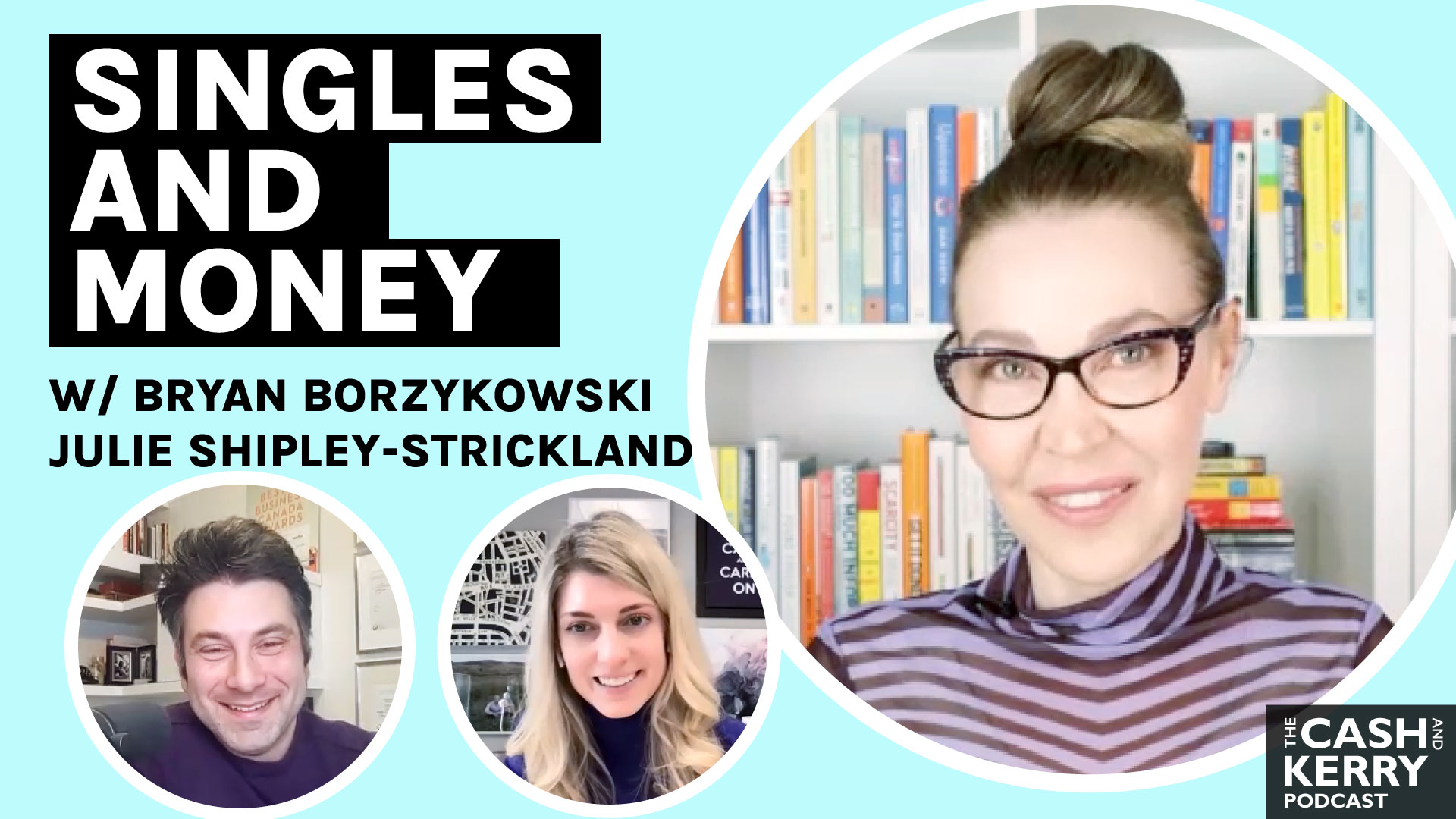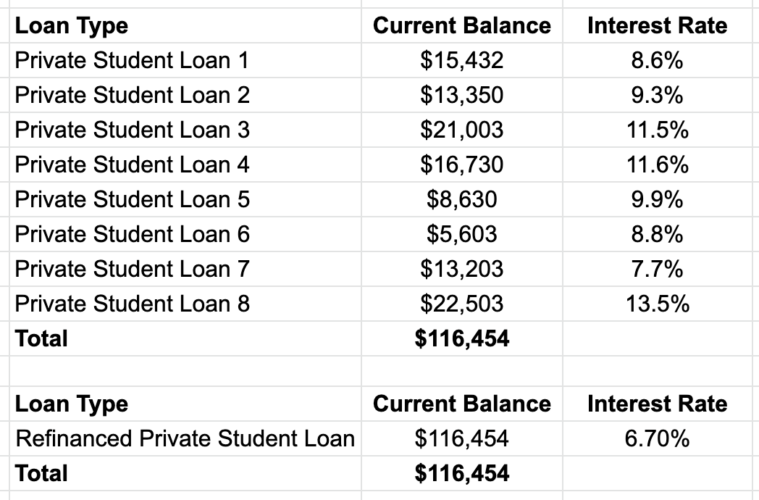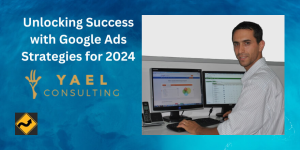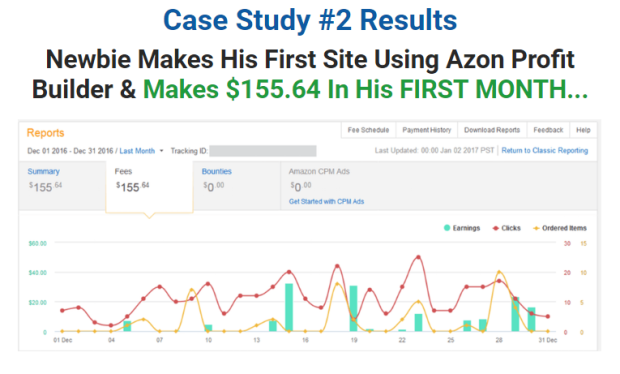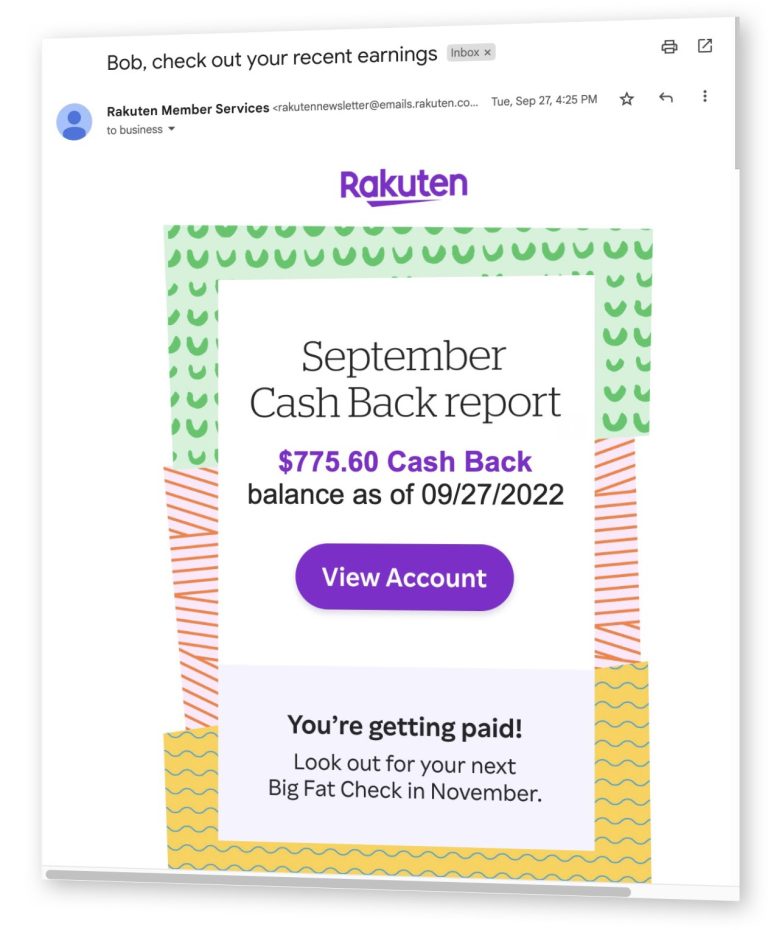Kerry K. Taylor: Welcome to the Cash and Kerry Podcast, where we help you make wiser financial decisions and build better money habits to increase your wealth, health, and happiness Today is for all the single ladies and gents. We’re looking at an often missed topic in the money media, and that’s personal finance for singles.
Kerry K. Taylor: If this doesn’t sound like you today, think again. Many of us will spend stretches of time solo living either by choice or circumstance. I’ve got the authors of the Canadian Guide to Personal Finance for Singles to help. Julie Shipley-Strickland is a senior wealth advisor with Wellington-Altus Private Wealth, and Bryan Borzykowski is a business journalist and founder of ALLCAPS content.
Kerry K. Taylor: So let’s do this. Hello, Julian and Bryan, welcome to the pod.
Bryan: Hello. Thank you. Thanks for having us.
Kerry K. Taylor: It’s my pleasure. So I got your book and the thing that surprised me, it’s it, it says it’s for Canadians, but it’s quite broad. It could help people you know in other areas besides the Great White North.
Bryan: Yeah, totally. And I think it’s also broader, like the book is, uh, um, for singles, but there’s a lot of good general advice in there too, uh, around personal finance. So I think it kind of does have a much broader appeal than the, uh, than the title, which obviously is, you know, it’s, it is for singles and for, and not just people who are, have always been single, but people who have gotten divorced, people who’s had a partner pass away. So it covers all of that, which is, is broader than singles. Um, yeah, which I liked cuz uh, you know, it’s nice to be able to kind of talk about a lot of general personal financial advice in there as well.
Julie: Yeah, absolutely. And I think the other thing that I keep getting asked is, you know, a lot of partners now keep their finances independent, right? And so this is one way where you can really focus on what you want to garner from your finances and your wealth. Um, so I’ve had some very happily coupled up people that have said to me, you know, I really appreciated the book and focusing on my own finances within partnership, so it fits there too.
Kerry K. Taylor: Yeah, I was, um, I was happy to see it because I know that personal finance, uh, thinking about the, the single person of mind, it’s a huge area and it’s often missed by the media.
Bryan: You know, it’s interesting you say that cuz uh, it’s true. And I actually, you know, I’ve been writing about personal finance for like, I don’t know, a crazy amount of years now.
Bryan: Um, I will not say out loud, uh, um, cuz I can’t even do the math in my head anymore. But, um, I really have not written about single personal finance and singles. Um, I think ever, like rarely, if ever. Mm-hmm. So this was kind of new a bit for me too. Um, and I think to your point, that is largely because it isn’t really talked about in that way. Some people are doing it more now, but it definitely is an under-explored area, so hopefully this book can help with that. But it was interesting to me too, to kind of explore, um, a topic that I haven’t done that much on. And I don’t know, Julie Practice, I’m sure you, you, I mean, I don’t know how you see that.
Bryan: Yeah.
Julie: It’s, it’s, it’s a different planning process for someone that’s single. Right. Um, and again, whether recently divorced or or longtime divorced, chosen single or bereaved, there’s different planning steps that we can incorporate. Um, but it isn’t something that’s talked about. And often that’s one of the first discussions I get when I’m meeting with a prospective client is, you know, do you know the rules around.
Julie: Um, it being different and the planning being different for someone that doesn’t have a partner to leave things to, that sort of thing. So yeah, it’s definitely something good that we were able to dig into it and kind of explain what’s going on with that, um, area, I guess is best way. I mean, I,
Kerry K. Taylor: I was reading through the stats in your book, and I, I looked in the states too, and it says about 28{e6a1e97ec1a15155ca0ed8c3e87721e561c99ed6e52274045963a20278fc2089} of Canadian households are considered one person, and that’s more than any other type of arrangement across the country.
Kerry K. Taylor: And 50{e6a1e97ec1a15155ca0ed8c3e87721e561c99ed6e52274045963a20278fc2089} of those single solo livers, uh, are women. In one person households because, well, we tend to outlive men, and it’s the same in the states. Uh, nearly 50{e6a1e97ec1a15155ca0ed8c3e87721e561c99ed6e52274045963a20278fc2089} of US adults are single. So it’s a surprise to me that we’re missing this huge group of people that could really use some financial
Bryan: advice. I mean, I can’t remember when the census numbers came out.
Bryan: Which one? Uh, just offhand. But I do remember when this came, when this stat came out and we saw, you know, the proportion of one person households had, had now overtaken most of the other categories. Um, it was surprising, shocking. There was a lot of news around that, and I remember seeing that and being like, this is.
Bryan: Really interesting. It’s, it’s really changed. I mean, society’s changed a lot and you’re now seeing that reflected in the numbers. So yeah, it is a big area that people aren’t paying attention to. But it is still in some ways just getting started because, um, it, I think it was, I. Um, only in the last census where you saw some of these numbers really shift in a big way.
Bryan: They’ve been shifting over time, but, um, but it, it, you know, it’s still relatively new. Like we’ve had years and years of, you know, the, uh, the, the husband, the wife, the two, the boy, the girl kid, the picket fence, the white picket fence, right? That was, um, right, what it’s been for a long time, at least the perception, that’s what it’s.
Bryan: Been, and now that’s changing. And I think there’s gonna be a whole, whole bunch of different areas that, uh, personal finance could apply to, that this book could help with. But there could be other books, um, as well. It’s just, it’s in, it was interesting to me to see how much that’s changed.
Kerry K. Taylor: Are there areas where singles may be more vulnerable?
Kerry K. Taylor: I mean, everywhere it seems that society is surrounded by couples.
Julie: Yeah, I think, you know, I think we touched on a few things in the book for sure, but, you know, one area is that they’re, they’re definitely not maybe bouncing financial advice or financial ideas off of, you know, someone that, that can relate to their situation.
Julie: So I think having some guidance and some support in that area, whether it’s a book or a trusted friend or whatnot, I think, I think that’s definitely one area, two spending’s different and so is saving. When you’re only relying on one income and yourself and there’s really no other opportunity for a second person to be bringing money into that household in the stage you’re in right now, you know, that puts additional pressure and stress on, on the single person as well.
Julie: So I think, you know, acknowledging that and then having some sort of support there forum, I think is really important too. So I think we definitely tried to touch on that in the book.
Bryan: Yeah. And I think that’s actually a big, um, and an interesting kind of change in society too, is this two income households.
Bryan: Mm-hmm. Um, and there, you know, the world is now more set up for that. I mean, wealth, um, the wealth gap is increasing for lots of reasons, but part of it is you have now two people working, sometimes two people working in really, You know, well paying jobs and when you pull that money together, you really can kind of do a lot more, um, with your combined finances than you can with one.
Bryan: So it really does, um, have an impact when we’re, we’re sort of living in a world now where one. Regular healthy income doesn’t necessarily go as far as it used to be. So that is a struggle cuz um, how do you, how do you kind of do what you want to do when you know the people next door have two incomes that are kind of doing the same thing?
Bryan: And we, one of the things that we noted in the, in the, there was a chapter on just different expenses and, you know, we looked up like hotel expenses, right? Like, Hotel room. A hotel room for one person is the same as two people. Like, there’s almost no difference. Um, there were a few places that I looked up where, where we looked up where there was like a slight difference, but um, it was really almost always the same.
Bryan: So right there, I mean, that’s just like an example of how, you know, two people can pay this, you know, half each, each sort of has their, uh, half or a hotel room and one person has to pay the full price. And, and there’s a lot of other examples like that. Well, there’s
Kerry K. Taylor: taxes. I mean, so many of, uh, so much of the income tax benefits are for couples, right?
Kerry K. Taylor: You’ve got the spousal R S P or a spousal r i R a. I mean, it’s everywhere in the tax code
Julie: too. Yeah. I mean, even if you are living in the same household as someone, right? There’s different tax credits if you file together, that sort of thing. Um, so yeah, it’s definitely still targeted, I would say.
Julie: Predominantly for some sort of coton, couple them and partnership, right? It’s not, we’re not, it’s not targeted for singles. Um, but with those stats, who knows what’s gonna happen, right? Uh, you know, we get updates every year to the, to the tax act and that sort of thing. So we’ll see. We’ll see if it starts to evolve a little bit.
Kerry K. Taylor: I mean, it’s crazy areas too. I was grocery shopping. It’s food. I mean, you know, something as simple as food, where you got the family size, the jumbo size, the bulk size, right? If you’re single. You’re gonna buy something perishable. Um, you’re gonna have to stick with smaller sizes, and those might be so, uh, more expensive.
Kerry K. Taylor: So it’s kind of like everywhere in life, uh, singles come up and they’re like, Hey, that’s a, a better deal if, if you’re living with someone or you’re, you’re in a
Bryan: couple, right? Yeah, for sure. I think that’s a big one, especially now with inflation. Food inflation’s continuing to rise and hopefully that will reverse soon.
Bryan: But, um, you know how you are buying, uh, you know, Yeah. Smaller sizes can be more expensive. Um, you’re not getting the deals, the two for two for one or two for a cheaper price. Mm-hmm. Or even if you’re buying like a bag of apples, like, um, You know, it’s, you’re buying it for yourself versus, uh, a bunch of people.
Bryan: Like there’s a whole bunch of Yeah. Different things just like that where it, it sort of doesn’t quite even out. Um, it’s, you know, it’s hard to get like, um, I dunno, yeah, different kind of portions at different costs. Um, that could ch maybe that’ll change in the future, but, but I don’t know. Well,
Kerry K. Taylor: and then there’s home ownership, right?
Kerry K. Taylor: The, the cost is soaring. So what do you guys advise for single people to do about home ownership? Talk to the
Bryan: advisor,
Kerry K. Taylor: Julie.
Julie: Uh, well, we’re gonna start out by saying that, you know, everyone’s personal circumstance is different, and so you need to evaluate your own personal circumstances before you take any advice from anyone.
Julie: All right. Now, next step. Um, I think you, you, you know, in terms of owner ownership, even with two incomes, it’s becoming challenging, right? So, you know, I think it depends on, sure. One person probably needs less space. So smaller places, probably arguably a bit more affordable. Um, but you know, are people taking longer and I don’t have the data on that.
Julie: Are people taking longer to purchase a place that are single versus in couples? Probably given the cost, are there more singles, maybe in more remote or rural areas outside the major cities? Cuz it’s more cost effective to purchase there? I’m not sure, but it would be an interesting stat to see. I don’t think there’s really any advice that I have to give in that area.
Julie: I think for me it’s more what’s your circumstance? What are you looking to accomplish? I do however, find that some of my younger. Clientele that are single, aren’t purchasing or don’t see the same value in purchasing. If I go, you know, two generations ahead, so if I, if I speak to my 20 or 30 year old clients versus speaking to my 70 year old clients, my 70 year old would’ve always had a home.
Julie: And you know, they talk about the 25{e6a1e97ec1a15155ca0ed8c3e87721e561c99ed6e52274045963a20278fc2089} interest rates in the early 1980s and all that kind of stuff, right? But the younger generation isn’t, uh, always as eager to purchase. As, you know, maybe that generation. So that’s been interesting as an advisor to kind of hear the different views, pros and cons, um, for why or why not they’re purchasing.
Julie: So I think some views are changing. I think some of it could be the affordability, um, but I think it’s also their beliefs and what they, what they wanna do with their money. Yeah, I mean, even
Kerry K. Taylor: as a, a couple, I found the housing situation, uh, just, you know, crushing, I was living in Toronto for a number of years, and even with two incomes, it was, it was a challenge because our rent was $3,000 a month.
Kerry K. Taylor: Mm-hmm. And that’s where a two bedroom apartment plus, you know, child expenses. So, you know, as a single, that is a crushing expense that many. You know, would be crushed by. So I looked at other living arrangements. You know, there’s the co-living, which is the new way of saying, uh, roommates, you know, then there’s co-op living.
Kerry K. Taylor: But I think it, you know, it’s, it’s a challenge for where singles should, you know, set up
Bryan: home. Yeah, I mean, I think that you, to your point, I think, I mean, what is interesting is that there are different arrangements coming out. People are sharing homes. I had a friend before they, they got married. He got married, he, he moved in with a friend and they bought their house together.
Bryan: Um, and they eventually sold it and made a little money off it and took that into their re you know, relationships. But, um, but it was interesting to see, and I think we’re seeing more of that. I think we’ll see different. Arrangements more, um, uh, you know, living with parents longer, uh, multi-family situations, and we’re already starting to see that.
Bryan: So I think that’s sort of a general trend, just broadly for all couple singles. But I think, you know, on the, on, on the single side, if, if they’re, yeah, I mean, the. You have to pay for it all yourself. So maybe there will be other situations that arise that kind of benefit everybody. Um, but for sure this is a bigger conversation, I think just on housing affordability as Julie said.
Bryan: But it, but I do like seeing kind of the creativity that kind of people come up with, um, to make their situations work. Um, you know, well for today.
Julie: Yeah. And on that note, actually Calgary just passed certain areas of the city where, uh, we have detached garages depending on the neighborhood, and they’re allowing to build suites above those detached garages.
Julie: So just a lot more creativity, a lot more affordability, availability there. And they’re trying to make this denser is one of their, you know, premises behind this. But I thought that was a really neat idea cuz you can have a pretty neat suite. The garage is right underneath that kind of thing. It could be interesting.
Julie: So I like the creativity.
Bryan: I know lots of single, single people, whether they’ve been divorced or who are, you know, are single and hadn’t
been in a, in a marriage before, uh, or a long-term relationship. And they can’t, they have, they have homes, they can’t get them, they can’t buy them. Um, so I just wanna make sure like, you know, it’s not out of reach for people.
Bryan: Um, it depends on kind of how you save and jobs and all sorts of stuff. But there are lots of people who, who, who can do it. Um, So, yeah, but you know, not maybe buying the giant house that needs, uh, multiple, multiple family members.
Kerry K. Taylor: Well, Bryan, you mentioned trends. I mean, have you seen any other trends in the single space that, um, that is going on?
Bryan: Um, I mean, I think people are staying, I nothing, you know, different than people know. I think there are a lot of people who are staying single longer finding, uh, and not only by choice too, not just, um, because. That’s their situation. But because they wanna stay single, they want to be more independent, they, they don’t, you know, they don’t want to have a sort of the traditional kind of relationship.
Bryan: And, um, so you’re seeing more of that. And I think that’s partly what’s being reflected in the stats can numbers that we were talking about earlier is just people kind of taking control of their own life, maybe in, in a different way that they didn’t, uh, Well, maybe wasn’t accepted before. Um, and I think that has the potential to change a lot of the different things we’re talking about.
Bryan: Um, you know, will there be more options for all sorts of different kinds of families in housing and food and hotel room choices? I don’t know. You know, and the prices. Um, uh, that’s probably the main thing that I’ve seen. I don’t know, Julie, if you’ve, you’re, you’re probably closer to working with people who are single.
Bryan: Um, so any, anything that you’ve seen?
Julie: Yeah, I think, you know, I was thinking about this. Last week I had a new client sign on and actually, um, they’re not married, they’re engaged and they are actually both planning on keeping their own properties, so getting married later in their thirties. Um, and they both really like their homes.
Julie: And, um, there is, uh, The gentleman does have kids from previous marriage, and, um, the woman just, you know, she, she wants to live there sometimes and that sort of thing, but she also wants to keep her own space. Um, and so they gave me two different addresses and so I, you know, went through things and just, anyways, the rationale behind it was really interesting.
Julie: You know, she’s been living on her own for 20 plus years and she’s really comfortable with that. Really enjoys that, likes that, um, doesn’t necessarily wanna be living full-time with new husband and two step kits, who she adores and thinks is great, but, So she’s just gonna keep her place as well. Um, and it’s been a great investment for her, so she doesn’t wanna get rid of that.
Julie: And I thought that was a great perspective from, you know, from her own independence. She really feels confident in that. Um, so I really liked that. So you’re seeing that whereas I, I would probably already saved 20, 30 years ago, that would’ve not been acceptable. Right. Whereas now I was like, huh, that’s a great arrangement.
Julie: Sounds lovely. Peaceful, quiet little place. Can I have the coat? Get in. Go sit there and enjoy some solitude.
Bryan: You’ll not show this podcast to your husband, just just in case.
Julie: Oh, no. He would. He would be like, go, go. Please go. Yes, yes. Go quiet.
Kerry K. Taylor: Can set up your own Zoom studio there, that’s for
Julie: sure. Right? Be all quiet.
Julie: That’d be great. Yeah. Yeah. Um, so yeah, I guess that’s one thing that came to mind that I’m seeing. Um, and I, you know, I’ve only seen it really with one client, but I thought it was interesting, so, yeah. Okay. So
Kerry K. Taylor: one of the chapters you guys have is all budgeting. You know, and I, I, I hate it, but I do it. And no one really loves it.
Kerry K. Taylor: But again, you have to do it. So you guys recommend two different options. You have the 70 20 10 rule, and you have something called the three bucket strategy. How do
Julie: these work?
Bryan: Okay, well we’ve got two different things. A 70 20 10 rule. I could do a reading from the book, just no, just kidding. In my, uh, best Shakespeare voice.
Bryan: But, um, so this, so essentially both of these are kind of three buckets. Um, and the first one, you know, these are rules of thumb. We’ll work for everyone, but the first one is taking 70{e6a1e97ec1a15155ca0ed8c3e87721e561c99ed6e52274045963a20278fc2089} of your paycheck and putting it towards your monthly expenses. So cover all that off. Um, you’ll want to kind of put it, lay out a budget as well, so you know how much you should be allocating to each of these things.
Bryan: Um, then 20{e6a1e97ec1a15155ca0ed8c3e87721e561c99ed6e52274045963a20278fc2089} of your salary and putting it to investments, that is often a lot to ask. Maybe, I don’t know, Julie, but like putting 20 cent of your money to investing is, might be a little high and then 10{e6a1e97ec1a15155ca0ed8c3e87721e561c99ed6e52274045963a20278fc2089} to pay down debt. Um, it’s not perfect, you know, in a world where we’re in today where interest rates are higher, you might want to.
Bryan: Actually maybe flip those and put, uh, debt, uh, put my more money down on debt, especially high interest rate debt, especially for returns are a little more muted today, but that’s essentially sort of an easy way to kind of think about your money. 70 kind of day to day, 20 for the future, 10{e6a1e97ec1a15155ca0ed8c3e87721e561c99ed6e52274045963a20278fc2089} on debt. Then there’s a three bucket strategy, which is a bit more of an investment strategy, but um, it’s similar in that, um, you have three buckets.
Bryan: One is for long-term investing. I think of it like. Like water, like water spilling into each bucket. Um, You have your long, you have your long-term investment strategy, that’s gonna be your future growth. At some point, you kind of take some of those gains, you put it into your intermediate bucket. Some of that’s bonds, some of that, a little bit more of a diversified basket.
Bryan: Um, and then you’re pulling maybe off dividends and, and, uh, income from that and putting it into your kind of day-to-day, taking that out, putting into your day-to-day expenses. So there’s always something growing. Um, and there’s always kind of income coming in that you can use. And, uh, Uh, I don’t need compliance to, to run through this with me, so hopefully that’s okay.
Bryan: But Julie, if you, Bryan
Julie: said this, he’s not licensed. Um,
Bryan: did get, is that right? Did we get that right Julie?
Julie: We’re just gonna, we’re gonna make a couple small, very minor tweak
Bryan: from the, from the advisor. Listen to her, not me.
Julie: Prior than us. Okay. You guys are crazy. 70 20, 10 rule is very general and very broad.
Julie: Okay? Uh, it really depends on age and stage of life. The other thing is I often get from clients, you know, paying down debt includes your mortgage, and your mortgage is often a lot more than 10{e6a1e97ec1a15155ca0ed8c3e87721e561c99ed6e52274045963a20278fc2089} of your income. So it’s, it’s something to say that, you know, 50, 60, 70{e6a1e97ec1a15155ca0ed8c3e87721e561c99ed6e52274045963a20278fc2089} of your day-to-day. Bi-weekly paycheck should be taken care of day-to-day, biweekly things, so monthly things, that sort of thing.
Julie: Okay, that last 30{e6a1e97ec1a15155ca0ed8c3e87721e561c99ed6e52274045963a20278fc2089} is really discretionary, not discretionary, like Bora, New Mexico, discretionary, like I have a high mortgage and I’d like to pay it down a quick, quick, a bit quicker. Therefore I will put more into that. You know, I’m getting closer to retirement. Maybe I wanna put more into savings. This sort of idea.
Julie: So there’s a lot of flexibility in that space. Okay. In terms of the three bucket strategy, that really depends what stage you’re on. So, you know, younger clientele wouldn’t even have often a third bucket. They might have a savings account that they’re keeping, you know, for their trip to Mexico, or four rainy day or an opportunity, but then they’re going to kind of have two buckets.
Julie: One’s a little bit more medium and one’s a bit more long term when you’re 35, 40, 45. All of it’s long term because you’re retiring at 55, 60, 65 whenever you decide to slow down, retire, that sort of thing. Okay. Um, but in retirement is when you would really practice those three, but those three buckets more.
Julie: Shall I say stringently because you want a couple years income in case we go through a 2020 or a 2008, you don’t wanna be drawing down on your investments, so you’d like some cash. That’s gonna be a shorter term bucket. Your medium term I often think of as three to five years. So things that could come up in the next few years, but after your cash is depleted, that’s probably one to two years, and then your long term.
Julie: Remember if you’re 70, 75 and retired as an advisor, I wanna make sure your income’s lasting until a hundred. Right. I don’t need you running outta money at 85. So I still have a fairly long time horizon, which Bryan was alluding to. That’s where dividends go in. That’s where you can reinvest cuz it’s really for a longer term, uh, play.
Julie: Let’s say when we’re looking at your overall portfolio and investment strategy, I. See, just minor tweaks, Bryan.
Bryan: Just what she said, what she said. No, that’s right. I mean, I think the, you’re right, she said the bucket is yes, certainly, right? For kind of older. Um, it is, I think it’s actually more, it is more of a retirement strategy, uh,
Julie: more of a retirement strategy.
Julie: But someone younger should still have obviously, a savings account in case an opportunity emergency comes from. Comes up that you, you either wanna take advantage of or you’ve got something where you need liquid cash, right? So I do think it’s an important thing to also have, but you may not really have much differentiating between that medium and long-term strategy.
Julie: Those, those might be pretty similar. Is there,
Kerry K. Taylor: is there a, a thought about how a single could approach, um, either contributing to their R S P or tax-free savings account or both, is this, uh, a, a single concern they should think about?
Julie: Oh, definitely. Like, I think that’s kind of a, that’s, you know, anybody that wants to slow down and or fully retire at some point needs to be looking at their savings options.
Julie: And so if they’re an employee somewhere, You know, maximizing that tf s a and that R S P, that RSP is one of their few deductions they’re gonna have. So it, it’s pretty important to be using that as long as their income warrants it. Right? Um, if you’re making 30, 40,000 a year, you probably don’t have as much need for an R S P as someone maybe making 90 or a hundred thousand.
Julie: If you’re making 30 or 40, that’s when we should really be digging into that T F S A because we really wanna grow a nice pool of funds. That grows tax free. And then if we fast forward to kind of retirement income, you know, a lot of what people receive for retirement income is taxable. So if you look at, you know, C P O A S.
Julie: Any sort of pension, any, uh, you know, R S P income all becomes taxable to them. However, the T F S A is one of the few that, you know, if they need to draw on a lump sum in retirement, that doesn’t hurt their O a s. Um, so pretty important to have that from an overall planning perspective. Um, and definitely something we’re prioritizing for clients for sure.
Julie: Yeah, it’s key.
Kerry K. Taylor: Are there some other financial strategies? Uh, a single person, uh, single person should also consider? Uh, maybe with investing? Yeah.
Julie: I’m not sure if it’s necessarily. You know, when we build portfolios, we really look at risk, we look at timeline, um, we look at, look at ability to weather the ups and downs, right?
Julie: So kind of tolerance of the market that doesn’t really partake into a someone that’s single or, or in a partnership. I do find that often in partnerships, opposites. So you do have one that’s a bit more conservative, a bit more cash heavy, and one that’s a bit more aggressive and long term. And, and maybe I shouldn’t use aggressive, just like assertive with the market.
Julie: So of course in, in with, you know, a single person, they would probably only have one, one of those sides to them perhaps. But I don’t, I really think that, you know, a good advisor should be, should be investing based on risk and tolerance and that sort of thing. So I, I don’t think, I’m not sure single and couple road plays into it as much.
Julie: Um, It’s just more something where you’re targeting your goals and making sure that your investments line up to what you’re trying to achieve with your wealth goals.
Bryan: I think where some of the differences could come in and, and Julie, you can kind of pick up on this after I make this statement, cuz we’ve been talking sort of about single people in the context of people who have single and not been in a relationship or not with a partner.
Bryan: But you know, as again, the book does talk a lot about kind of divorce and death. Mm-hmm. And so in those situations it is different because you could be getting, um, an inheritance. What do you do with that? That’s a whole other discussion as to how, how do you actually invest that and make that money? Last estate planning, how, and that’s in the book estate planning.
Bryan: How do you actually pass that down in a divorce if you’re getting, uh, Um, you know, um, money from the other partner or, you know, support, child support, um, how do you use that? I mean, maybe that, that’s your day-to-day expenses. So what you’re earning can go into, um, into, into your R S P. Like, it, it, there’s more facets around sort of how to use that money if there are other income sources coming in based on kind of your situation.
Bryan: So, um, you know, in that case, you know, there could be other, other options or just things to consider. Okay. Well
Kerry K. Taylor: you mentioned, uh, you’ve mentioned, uh, becoming a widow a few, a few times. Do you have advice for women whose husbands have handled the household finances and they’re now single?
Julie: Yeah, I, it’s, it’s so interesting because I.
Julie: I feel like as the baby boomer’s age, we’re seeing, so I’m seeing so much of that, right? Because traditionally that generation, it was male dominated who handled the finances. Um, I think you need to find someone that you trust. I think that’s first and foremost. I think you need to understand that there’s a lot you might not know, and that’s okay.
Julie: You can learn it. Um, so there’s nothing wrong with that. Um, I find when these, this clientele comes to me and I’m working with them, is that there’s a lot of feelings of, I should have known this. I should have asked that. Why didn’t I take care? Why didn’t I learn this? It’s like, you know what it, that’s okay.
Julie: You can learn at any age. So I, I think having a bit of compassion and empathy for oneself in those situations is really important. Um, and I think finding an advisor who’s prepared to educate you and support you through that journey. Um, I’ve got clients definitely in that space and I mean, my, my dad passed away.
Julie: Um, my dad was 58 and my mom was 55. Um, so this was about 10, 11 years ago. And my mom was a nurse, professor of nursing at McGill and YE College, like very accomplished woman, but just never touched the finances. Cause my dad was an advisor. So why, why would she Right. And even afterwards, I sat down with her and she was just very smart woman, my mom, and, and still overwhelmed with the amount of that she had to learn.
Julie: So, and you know, as her daughter, I’m helping advise her and that sort of thing. So it was an overwhelming process for her. And I must say she learned a lot. Uh, she, she knows so much now, it’s awesome. Um, and she supported some of her friends that have gone through that since then. So I, I think it’s important to.
Julie: To really sit in compassionate empathy in that space because, um, and, and find someone that can support you because it’s, it’s a lot. Um, but you can also do it
Bryan: so, Yeah. What’s interesting, there’s sta I, I was looking, just looking through the book for a sec, see if I can find the stat. I think it might be in here, but there is a stat that is talks about how many, um, women switch advisors after their husband passes away, or because the advisors, um, have this one relationship and they don’t actually know how to really talk to women and, and sort of understand their needs and that is changing.[00:28:00]
Bryan: Um, so I think, I don’t know who’s gonna be listening to this, but if, if their advisors are listening, I think, you know, then Julie could probably agree if she’s allowed to. Um, but I. Think that, uh, you know, more advisors should be picking up on this and saying, Hey, this is a two person partnership. We should bring in the family, we should bring in your spouse.
Bryan: Mm-hmm. Um, because you know, who knows what’s gonna happen. And then at the same time, the men listening to this too should say, okay, well that’s an outdated, um, kind of idea that women shouldn’t know about the finances. More women are making money now. It’s their money too, even if it’s just shared. So, um, they should be bringing in women into the, their, their spouse into the conversation.
Bryan: Um, and so, um, you don’t want to, I mean, I think, you know, You try and, um, protect your family. If someone, if the you pass away, you have life insurance, well, the same way you should be protecting your spouse by bringing them into the conversations because who knows what’s going to happen. And, and I think, I think that will change as, you know, younger generations and couples kind of, um, hopefully take a bit more of an equal role.
Bryan: I think that’s, you know, changing or at least. The ideas around traditional household roles are shifting, and I, and I think that hopefully will lead to more con conversations with couples. But, um, it is a problem for sure if, if you, if, if the person, you know, your spouse passes away or, or gets divorced and you have no idea.
Bryan: But, um, if someone is listening to this and that is them, I mean, they should say, show me, show me how this works now. Yeah.
Julie: Absolutely, and I would say with my younger generations I’m definitely seeing equal counterparts on both sides of the couple wanting to be involved. Some may take the lead more than others, um, but I am finding definitely a hundred percent the woman wants to be involved and it’s awesome.
Julie: It’s fantastic. They’re interested, you know, they’ll let their husband maybe make a couple decisions or, you know, be the lead on it, let’s say, but they wanna know what’s going on, how things work. They wanna be educated. It’s awesome. So I think it’s definitely changed. Yeah.
Bryan: And the, and the funny thing is about this is that I, there have been stats too, and I wish I can remember the numbers, but like women, a lot of women do actually take care of the household bills.
Bryan: Mm-hmm. Like they know how much is being spent on different things. And so there is this idea that only men know all this stuff. Men, I think. Do the investing historically, and that is, you know, really growing your investments. So that gets a lot of attention, but women aren’t, um, have no clue. Like a lot, a lot of women are very attuned to kind of what the day-to-day spending is.
Bryan: So that combination needs to happen where everybody’s kind of in tune all parts of it. Yeah. Now I see
Kerry K. Taylor: that too in my readership. I see, uh, you know, the younger generations, uh, the millennials and the Gen Xers as well, they’re partnerships when it comes to the money, but it’s, it’s pretty common that I get an email from a boomer who’s newly widowed or newly divorced.
Kerry K. Taylor: And, uh, they all wanna do the same thing. And, and that’s fire their financial advisor because that advisor only spoke to their husband and didn’t include them in a lot of the financial decisions. So, I mean, if you’re, if you’re an accountant or a lawyer or a financial planner or whatever, You know, you gotta include the women in the conversation because there’s gonna be a wealth transfer and they’re gonna be more than happy to, uh, take their money elsewhere.
Bryan: 86 trillion. I just, uh, actually wrote this this morning working on the intergenerational wealth transfer. 86 trillion globally is gonna switch over, between now and 2045. Um, so there’s gonna be a lot of these conversations happening with advisors. How do, and, and people are gonna be switching.
Julie: I thought you just made that number up.
Julie: I think that you gave it some good backing that you said you wrote it this morning, but
Bryan: I just wrote it down in my notepads outta thin air. Yeah, so you see a lot of different numbers. I think the latest one I saw was 86, but there are, there are other ones.
Julie: Let’s go for it. I think it, that sounds like a phenomenal number to me.
Julie: I’m in Sign me up.
Bryan: Yeah, I don’t, where do I get some of that? I dunno. I don’t,
Julie: yeah,
Kerry K. Taylor: you I’m, I’m into it. I’m into it. So, uh, one thing a lot of my readers, uh, don’t prepare for is, is no one likes to think about becoming single. If they’re in a, a partnership and they’re not seeking a divorce or a separation, a lot of people do come wi become widowed at all different ages,
Julie: right.
Julie: It
Kerry K. Taylor: should, should this be something we plan ahead for? Is this. You know, part of life that, um, we should be planning. Yeah. And how would we do that? Right? Like, I don’t wanna do it. I don’t wanna think about, oh, my husband’s insurance is here and. And this is the credit card there. I mean, we do take, uh, take certain bills and have ownership of each of them.
Kerry K. Taylor: So there’s like a lot spread out here. You know, the safety deposit key. I was just thinking about that the other day after reading your book. I’m like, I have no idea where that is. And we’re a joint couple. We are in a partnership here and there seems to be, you know, maybe there needs to be a conversation.
Kerry K. Taylor: Each couple has
to
Bryan: have. I don’t know where my safety deposit box key is either. I’m gonna go ask my wife after both of
Julie: you actually. That’s great right now. Goodness gracious. Um, I think it’s something that definitely, you know, I, I speak to clients about quite a bit, not the safety deposit key that I haven’t touched, but apparently I need to add it to our, our fact find list.
Julie: So I’ll, I’ll get on that. Um, I think one of the things, yeah, I mean, and I preface it, I say like this, Meeting isn’t going to be the most fun meeting you’ve ever had in your life where we gotta like, talk about wills, get something set up, make sure you’re organized in that realm. Where is all the insurance?
Julie: What will happen? Because traditionally, I mean this is the latest stats I saw, and I’m not making up these numbers, Brent, um, is that women were pushing about 88 years old in North America as their lifespan. And men, they had reached 80 and then covid, they’re, they’re back down to 79. Last I saw so long. I don’t know what happened there, but, we’ll, we’ll leave that one.
Julie: Um, so, you know, on average women will live about 10 years, um, longer than men. If all things are else being equal. Um, so it is something where, yeah, some planning needs to be done. Some, some knowledge has to be had, you know, it’s not like I know, you know, every password for my husband’s bank and all this kind of stuff, but anything that’s joint, I definitely know.
Julie: Um, I know where things are for us to be able to get, you know, if I need passwords, if I need codes, if I need to be able to get in. Um, you know, secondary people need to be on bank accounts. You, you need to have things a little bit more sorted and sure it’s not the most fun, but it also does give you a huge peace of mind.
Julie: So there is that balance there that, yeah, it’s on the to-do list and then, you know, might not, might not top the most exciting thing, but it does top peace of mind. So
Bryan: I have a, I have a folder. Yeah, I have a folder with like life insurance documents. Tell my wife where it’s at. I probably reminder. Um, but, uh, but.
Bryan: Um, it’s, yeah, it’s, can, can I swear it’s a shitty conversation. Yeah. It’s, we’re, we’re not on, we’re not on like a terrestrial broadcasting here. It’s a shitty conversation. And, and even, and, and, you know, and, um, but there are times where you can have those conversations when people pass away. It sort of makes me think about this stuff.
Bryan: Hey, it could happen to us. Um mm-hmm. I think the advisor’s role is to kind of push that too and make sure those things are, uh, Are, are taking place. Um, and that’s why more advisors I think, need to bring both in the conversation. So if something does happen, but, but it is, it is, it is hard. And I think, you know, as I get older, I think about it more.
Bryan: But then it’s one of those things where like, I need to, I’m a journalist, I need deadlines, so I’m not, I’m hopefully gonna die tomorrow, but, um, so I keep pushing yesterday. I keep pushing her
Julie: yesterday. Yes. Yes. We don’t say tomorrow. We say yesterday, but
Bryan: if I was dead yesterday, then I wouldn’t be able to.
Bryan: But you’re
Julie: not, so it’s not gonna happen.
Bryan: Right? That I, yeah, I, I need the pressure to get these things done, but, um, but you know, it just, I, hopefully it just happens. Cause I don’t want to be, um, put anyone out in my family that’s, uh, you know, that would be the worst thing. So, um, we are not perfect in those conversations, but we’re trying.
Kerry K. Taylor: Well, I was thinking too, it doesn’t matter if you’re married or uh, not married, I think about the, um, beneficiaries of all my accounts or, uh, succession on my T F S A. I mean, this is, uh, something everyone should think about. I would,
Julie: I would think. Yeah, I mean, I definitely, for me, the role as an advisor, I mean, that’s, that’s part of our role is to make sure that that, you know, the eyes are dotted and the ts are crossed on, those sorts of things.
Julie: So, I mean, we don’t open a single account without having a successful holder or a beneficiary on it. So, you know, it’s just gotta become part of the process with whomever you’re working with, that that’s top of mind, right? Um, the next thing is, we don’t obviously do wills, but, you know, I have a couple lawyers that I, you know, send out to clients and let them choose who’s the best fit for them.
Julie: But I, I think it’s pretty important. You, you don’t wanna die in test eight, so you don’t wanna die without a will. Um, things get real messy, real fast. So it’s, it’s again, not a pleasant topic, not something fun. But I can’t stress the peace of mind, and that’s just client feedback. That’s having my own things aligned and, um, properly organized and, and, uh, I think it’s, it’s pretty important to make sure that that’s done.
Bryan: We do talk in the book about, uh, updating those, uh, beneficiaries. Um, because last thing you want to do also is. Well, maybe you wanna do this, but you may not, is if you into a new partnership in 20 years as you 20 year marriage and your life insurance is still from 30 years ago and your ex-wife is, uh, the beneficiary of the, uh, of the money.
Bryan: Like, you don’t want that. So you do have to look those over. If you are single and there is no sort of not a spouse to, um, pass, you know, pass your estate over to, um, who would that be? You know, think about that. So there are some questions there that even if it’s not sort of the typical relationship or something changes that you have to be on top of and, and, and still think about these issues, um mm-hmm.
Bryan: Does, doesn’t always. It’s easy. If it is easier, I guess if you’re married, just I’ll put my spouse. But lots of situations don’t have that anymore, so don’t forget.
Kerry K. Taylor: Yeah. So you mentioned wills. I’m seeing a lot of the younger generations getting that kind of a will kit or an online, uh, will set up type of deal.
Kerry K. Taylor: They’re saving money, but what are your thoughts on going the, uh, the self making will route versus actually hiring an estate lawyer?
Bryan: You take that first, Julie. Oh
Julie: yeah. Hey, so I’m not a lawyer. I wouldn’t say this is my wheelhouse. I can just go based on experience. Um. Mm-hmm. You know, if I’ve been told by a couple lawyers if things are pretty straightforward, some of those will kits are pretty, if they’re filled out properly, and you know, the witnessed and all, all the things, they, they can be fine if your situation’s pretty straightforward is my, is my understanding, again, based on people telling me not.
Julie: Me knowing this on my own. Um, but I mean, I think there’s plenty of lawyers who do wills for very reasonable costs. Um, I think often within a will you get financial power of attorney, medical power of attorney, you know, living will type thing, and then the actual will. So I think three documents in one is a pretty good, pretty good deal as well.
Julie: Um, and so I, I have many clients who prefer just again, back to that peace of mind of knowing it’s done right, knowing it’s done with a lawyer, you know, and then they can park it for a while and don’t have to worry about it for. A few years. So, uh, it seems to be that the trend is that more people want that peace of mind.
Julie: Um, but yeah. Yeah. I dunno,
Bryan: Bryan, I’ve got something to do. Yeah. I’ve, I guess I the same, I mean, I think essentially the more, the easier the e the less barrier there is to doing these things mm-hmm. The better it is. And a lot of people find the barriers, like, I don’t even know what lawyer to call. I don’t have a lawyer who can do it well.
Bryan: Or ask a friend and like, they’ll give you a number and then, okay, I’ll get on deadlines. Do it tomorrow. Do it tomorrow, do it tomorrow. Well, one night you can sit in front of your computer and fill out, um, an online will. So I think, you know, the digitization of the financial industry is a good thing for people where they can get access to products and do things that they need to do easily, just like their, you know, call a cab and rent a Airbnb or something.
Bryan: So that’s good. I think it, the trick is, you know, if you have a complicated estate, if you have multiple properties, businesses, you know, Tons of beneficiaries, blended families. Like these are the things where you might need, um, a professional, a lawyer to uh, actually ask you the right questions and structure something that fits a more complicated need.
Bryan: But my understanding, and again, and I am not a lawyer, um, my parents may have one point wished I was, but I’m not. So, um, I, I, I, uh, my understanding and I have asked about it, is that it is, it is legit, like it should hold up, um, in courts. Um, but again, Maybe ask a lawyer just to make sure, but, but you know, I know some of the people behind these popular wheel sites and they’re good people and, um, and, and so I think they do work.
Bryan: So if it’s simple enough, then I think they’re, they’re great. The more people that have wills, the better. Um, and if that’s, if you can do it digitally, then that’s, then that’s a good thing.
Kerry K. Taylor: Okay. What about, okay, so at every age and stage, uh, new grad, you know, uh, facing middle age or, or older, at some point, and I knew this when I graduated, I didn’t know how to find a financial advisor.
Kerry K. Taylor: It was kind of this murky area and I, I knew I needed help because I didn’t have a partner in crime to work together with, to, to figure it out. Uh, how should a single go about choosing a financial
Julie: advisor? This is, uh, I’m presuming I’m taking this one right, Bryan? Yes. Yeah. Ok. I thought I would just double check that.
Bryan: Um, I would just say call Julie. So, um,
Julie: yeah, option A. Call Julie, option B. Um, you know, at the beginning when you’re just starting out, the most important thing is to get into a habit of saving. So, You know, you can actually use your bank, your bank branch. There’s great financial planners and that sort of thing at the bank.
Julie: Okay. Um, I think when you’re starting out, you wanna get into routine. You wanna be saving 10, 20, 30, whatever you can of your income and get into that habit. I think as life becomes more complex, perhaps with the partnership, perhaps with little ones, perhaps as your career expands, maybe you get more properties or, or you’re working two jobs or things are getting more complicated in your life, you might need to start to.
Julie: Find someone within your network that can support you with all of that. You know, accountants are great resources, lawyers are great resources. You can look up who, who, which advisors have CFPs online. Um, there’s organizations you can look up in Canada to get different names, so there’s definitely resources there.
Julie: But I think I often hear as a barrier to entry. You know, someone that’s young might say, you know, I just, I haven’t saved, I don’t know who to go to. That sort of thing. Really, it’s as simple as like opening A T F S A at your bank and starting to save regularly. It doesn’t matter the amount, it really doesn’t, it just matters that you’re getting in that habit and once you’ve built something up, sure, then you might need more advice or that sort of thing.[00:43:00]
Julie: But at the beginning, it’s developing that habit
Bryan: for sure. And I think, I mean, to me, the, the really, I mean we actually cover this in the book, so when you read through it, we do. You can, there are suggestions, but you know, to me the two main things. One, number one, the most main thing is, uh, uh, connection, personal connection.
Bryan: Do you feel good about this person? Can you talk to them about your life? Like the, the advisors these days aren’t just, uh, okay, here’s my money. Go invest it for me, come back when it grows by 20{e6a1e97ec1a15155ca0ed8c3e87721e561c99ed6e52274045963a20278fc2089} or something. Like now it’s like, shit, my, um, yeah, I’m having, uh, marital problem, marital problems. I, I, you know, I called it a voice divorce lawyer.
Bryan: I really need some help here. Maybe it’s, you know, my kid is not, uh, gonna be the, uh, uh, you know, gonna go to Harvard, uh, like I thought, uh, so, um, how do I, you know, I don’t know, maybe, you know, life changes, like, and so I think. The, as a client, you have to be very open with your advisor these days more open than you were in the past where, um, because they need to adjust, adjust, ask you questions, trying to figure out how’s this gonna affect your financial picture.
Bryan: Maybe just to talk and like sort something out. Uh, money and money and I don’t have. When he is listening to this podcast, I’m sure knows, you know, money and stress and emotions are all intertwined. So sometimes it’s just, you know, I’m, I’m feeling really irritable. Uh, why, uh, oh, because, you know, I, I don’t know.
Bryan: I’m. Spending too much right now. You know, these things are connected, so someone you feel good with I think is important. And the other thing is fees. Fees are always big because when you get a bill at the end of the day or you don’t see where’s this money, it can be, uh, you know, you can have a fight over that.
Bryan: So, and advisors are now much more transparent about fees and I think they used to be in the financial industry as a whole. There’s still work to be done there. Um, but I think that, um, you can now feel comfortable saying, how are you gonna charge me? There’s lots of different ways that you can get charged and they’re good and bad.
Bryan: Pros and cons. To each one, but that’s the other key. Just understand how you’re getting charged and then make sure you have that connection. There’s lots of other things, but to me those are two. Two really key ones.
Julie: I love those. Bryan, I think the last, and you said this word, I think the key with it is transparency.
Julie: Yeah. You know, your advisor should be able to articulate exactly what you’re paying when you’re paying it. Sure. There’s some market fluctuations. You know, some of my portfolios will fluctuate depending, but we’re talking like, Pennies, they’ll fluctuate. You should be able to get a very clear understanding.
Julie: Just like when you go to the grocery store, you know what you’re paying for a bag of apples or a thing of milk. You should be knowing what you’re paying for your advisor. So definitely if they say, well, I’m not sure, et cetera, et cetera, no. You should be knowing it’s something in the industry that really needs to be worked on.
Julie: I agree.
Kerry K. Taylor: When I was new and starting out, um, I was single and I didn’t again, have a partner to bounce ideas off, and I, I didn’t know how things worked. What is the role of a financial planner? Like, what, what should I, what expectations should I have and how,
Julie: how can they help me? Yeah, I mean, I think, I think it’s pretty, pretty broad.
Julie: And I think depending on the financial advisor or the financial planner and how they want to run their practice and what services they wanna offer clients, I think there’s a huge breadth. You have a lot that might, um, do things like budgeting, um, you know, work on cashflow management, that sort of thing.
Julie: Um, and then you have other ones that really focus on investment management. And then there’s still others that focus more on the planning perspective and your goals and what you’re trying to accomplish. So I think it’s about finding an advisor that’s really aligned to what you’re needing support in.
Julie: Right. Um, a lot of my clients, I, I don’t do tons of budgeting with clients that that wouldn’t be my forte. And a lot of my clients aren’t looking to me for that. For example, they’re looking to me more for, you know, let’s take a bird’s eye view of your entire financial picture. Let’s look at your risk management and your wealth management, and let’s make sure that everything’s going together.
Julie: So all the insurances, um, corporate things that they have a business, all the personal RSPs, TFSAs, and then kind of blue skying out. What does this look like for retirement income? And then I work a lot with my client’s accountants, so I’m very, um, intertwined with how that’s working. That’s how my practice runs.
Julie: But a, another planner might be really into budgeting and cash flow and maybe not touching another area. So I, I think it’s important for you as, as the client to really understand what you wanna get out of that relationship and then find an advisor that matches that. Cuz the breadth is huge of what we can do.
Bryan: I see, like ideally to me, an advisors kind of part therapist, part coach. I don’t know if you know Julie, uh, gets paid enough to be a ther my therapist, but, um, part therapist, part coach part, uh, you know, um, cheerleader. Yeah, I don’t know. Like someone to guide to make sure to follow to. To keep track so you don’t have to make sure you’re on track and when things come up that they can have that conversation.
Bryan: That, that to me would be, you know, is a good, is a good advisor. It’s not really about the investing these days, it’s how does that investing kind of fit into, you know, those long-term goals and, and your needs and, and, and how do those things change as your life evolves? [00:48:00]
Julie: I think the last thing that, yeah, I might wanna draw on, you know, the past year the market’s been a little bit bumpier for sure.
Julie: And I think having those conversations of like part therapist, part coach has been, you know, a very big part of my role. 2020 was so quick, right? Like the market dipped kind of middle end of February and we had kind of studied out and we were rebounding by April May. Whereas last year in 2022, you know, we saw.
Julie: Eight to nine months of a bumpy market for sure. So you had clients that this was getting along, this was, you know, they were really starting to get nervous. And so I think a big role that I play with my clients is just reassuring them and educating them on what’s going on, why are things going the way they’re going right now.
Julie: Um, and so education I think is a very big role for my clientele. Um, and I think it should be in most advisors, you know, realm of knowledge is to be really be educating their clients so that they get that peace of mind. Yeah. I didn’t
Kerry K. Taylor: realize when I was starting out that uh, a financial advisor could really help me not be my own worst enemy.
Kerry K. Taylor: Right? Like they were guiding me cuz I was new to the market in investing. I didn’t know how it was gonna feel to see my money drop 10, 20, 20 5{e6a1e97ec1a15155ca0ed8c3e87721e561c99ed6e52274045963a20278fc2089} based on what my risk tolerance is at, was at the time. So it was mm-hmm. Super helpful to be able to call them up and say, Oh my gosh, what
Julie: is this? And they were able to
Kerry K. Taylor: talk me off a ledge.
Kerry K. Taylor: So there was a lot of, uh, as you said, therapy or psychology going on as well. Mm-hmm. Okay. So guys we’re near in the end. Um, what have I missed? What should all the single ladies and all the single jets, uh, Jens know about that we haven’t covered?
Bryan: Read our book. That’ll cover everything else. Um, yeah, all the gaps are in there.
Bryan: I mean, one of, just the thing, you know, Learn about money over year. It’s, it’s hard. It’s really hard. Um, it’s hard to, um, deal with on a daily basis. It’s emotional. It’s, um, it’s often hard to keep on the rails. Like things can go off pretty quickly. Um, it’s way more fun to spend and save. I know there’s stats that show that if you start saving, it’s fun, but like, I like saving, but I sure like spending, so sometimes there’s like a battle between those two sides.
Bryan: And I guess what I would say is, Catch yourself some slack, like, um, if you can work with an advisor and, and help get on track. Um, these things are hard, so get help, um, you know, read books like ours and, um, and don’t, I, I would say don’t put too much pressure, um, just sort of keep the long, long term in mind.
Julie: Yeah, I mean, to echo that, I don’t really have anything different, but I think have compassion with yourself for this. I think it’s, it’s not easy. Um, so, and I think one way of, of solving that, for a lack of a better word, is to continuously learn. So chip away, getting really well educated in the financial space, whatever really well educated means to you.
Julie: If that means you’ve got a one-on-one foundation, perfect. Great. If that means you could. You know, take over my role. Great. Sounds good. So I think just get educated to whatever makes you feel really confident and comfortable so you can make the best financial decisions for you.
Bryan: And I think, and I think we’re going to a place I hope, where it is easier and more enjoyable to manage your finances.
Bryan: And, and I, and you know, given the digital tools that are out there, um, it’s easier to kind of figure it out, uh, what you’re, what, what’s happening in your life. Um, they’re not perfect, but I think they’re getting there. Um, it’s easier to kind of understand your financial picture, you know, at one point.
Bryan: Point is stuff would just be over here. You couldn’t even budget really, like you’d have to, you know, now you can, there’s places that you can put in your bank account and it sort of splits the categories up for you. Still some work there that you have to make sure, but like put ’em in different categories.
Bryan: But it’s the, the start starting points are there. So we’re more empowered I think, ever before. To understand our own finances. Now the trick is just starting and saying, okay, I’m gonna, I’m gonna take control here. And then you supplement all that with someone like Julie or an advisor who again, it’s like their role is changing.
Bryan: It’s not just investing you. If you have sort of start off with some of these things yourself, that relationship can really be, um, I think strong and, and can really get more, you can get a lot more out of your financial life, I think, now than ever before if you do it, um, sort of in the right way.
Kerry K. Taylor: No, I’m excited.
Kerry K. Taylor: That’s fantastic guys. So your book, personal, the Canadians Guide to Personal Finance for Signal Singles, it’s, it’s broad, it’s encompassing and it’s made me rethink where I’m at in my own relationship and, uh, how to prepare better for the future. And I know for singles starting out, there’s a lot in there to think about and to help you get on the right track to, uh, to have the best situation for your personal finances.
Kerry K. Taylor: So where can we find you?
Bryan: Um, the book is sold exclusively through Indigo, so that’s, that’s part of it. Mm-hmm. I hence maybe the, the, the color, although the other books in the series don’t have, uh, are different colors, but, uh, yeah. Indigo you can get it from, um, but you can just, if you ever, if anyone wants to get in touch, uh, you just Google me and I’ll show up somewhere online.
Bryan: Um, Julie has, uh, an actual website and, you know, so, uh, sh. Yeah. Where can she, we find you,
Julie: Frank. You’re legit too. I promise you. Yeah. I can vouch for you. Um, yeah, so Waltz with Julie is my handle on Instagram. Um, look me up, DN me. Look, would love to chat. Um, and then my website is julie shipley strickland.com.
Kerry K. Taylor: Excellent. I’ll put all that. Excuse me. I’ll put all that in the notes below. Okay. Thank you guys so much for joining me until we chat again. Thank you. Thanks so much. Thank you. Thank you so much for tuning in today. If you’ve enjoyed the show, we’d be really grateful if you could leave us a review on Apple Podcast.
Kerry K. Taylor: You can also follow us for free in your favorite podcasting app or watch us on YouTube. And if you want more insights on how to improve your finances, you can sign up for the Cash and Kerry Newsletter at squawkfox.com. Thank you. And I’m Kerry K. Taylor.



